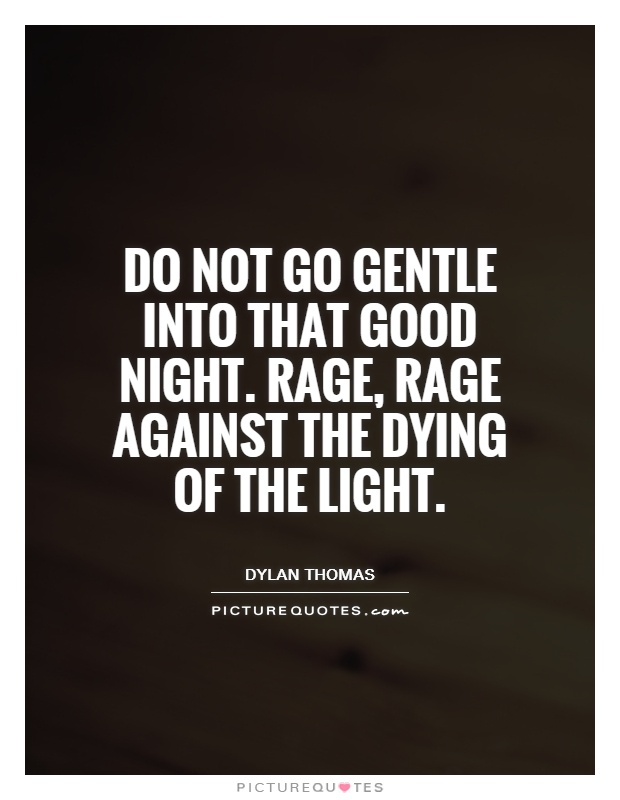Do not go gentle into that good night. Rage, rage against the dying of the light

Do not go gentle into that good night. Rage, rage against the dying of the light
"Do not go gentle into that good night. Rage, rage against the dying of the light" are powerful words penned by the renowned Welsh poet, Dylan Thomas. This iconic poem, written in 1951, is a plea to his dying father to fight against death and not give in easily. The poem is a reflection on the inevitability of death and the importance of living life to the fullest until the very end.Dylan Thomas was known for his intense and passionate writing style, and this poem is no exception. The repeated refrain of "rage, rage against the dying of the light" emphasizes the urgency and intensity of the message. Thomas urges his father, and by extension all of us, to resist the pull of death and to fight for every moment of life.
The poem is structured as a villanelle, a form that consists of 19 lines with a strict rhyme scheme and repeating lines. This structure adds to the sense of urgency and repetition in the poem, driving home the message of defiance in the face of death.
Thomas uses vivid imagery throughout the poem to convey the idea of fighting against death. He describes wise men, good men, wild men, and grave men all facing death, but none of them going gently into that good night. The imagery of men raging against the dying of the light is a powerful metaphor for the struggle against mortality.
The poem is ultimately a celebration of life and a call to embrace it fully, even in the face of death. Thomas implores his father to "burn and rave at close of day" and to "rage, rage against the dying of the light." This message is a reminder to all of us to live boldly, passionately, and fearlessly, and to never give up the fight for life. Dylan Thomas's words continue to resonate with readers today, inspiring us to live with courage and defiance in the face of our own mortality.












 Friendship Quotes
Friendship Quotes Love Quotes
Love Quotes Life Quotes
Life Quotes Funny Quotes
Funny Quotes Motivational Quotes
Motivational Quotes Inspirational Quotes
Inspirational Quotes